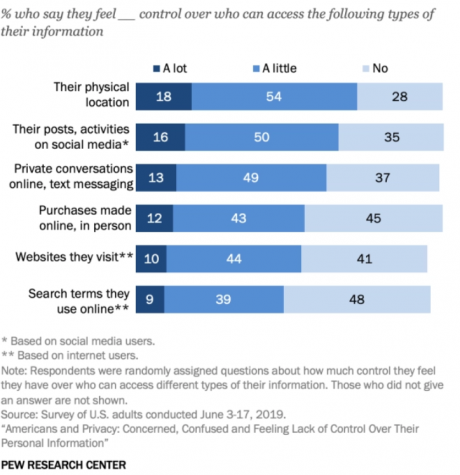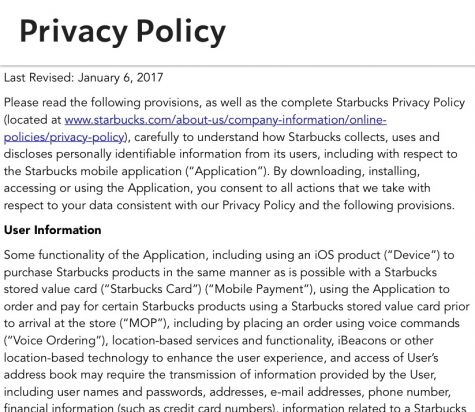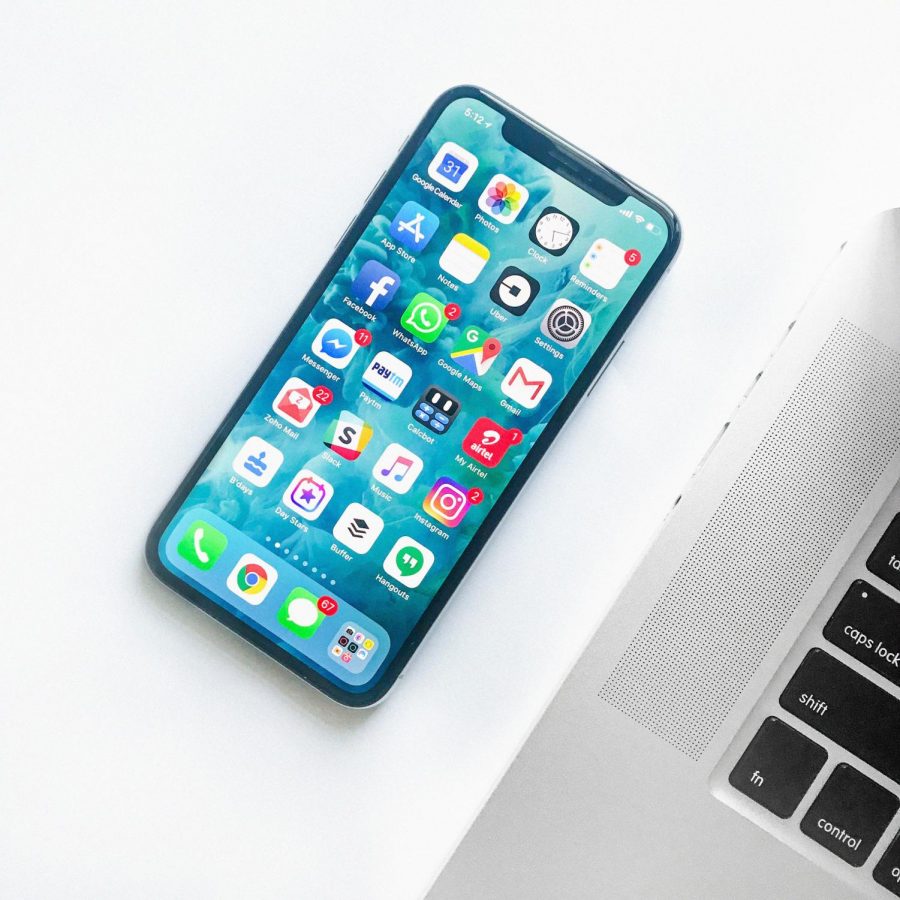Surveilled and Violated: Privacy in the Digital Age
Companies know more about you than you think.
First Name, Last Name, Birthday, Gender. That already feels like a lot of information to give to connect on a widely popular social media app, but Facebook and other tech companies learn much more about their users than the few things they ask for when creating an account.
Our generation has become accustomed to a lack of privacy. With pictures shared publicly on social media, security cameras on every street corner, and information about anyone or anything only a Google search away, privacy seems like a distant concept. But as more scandals emerge such as the Cambridge Analytica controversy in 2016 and the recent investigations into Tiktok’s privacy policies, there is a growing concern, confusion, and irritation with the collection of personal data held by private companies.
Facebook is commonly under fire for crossing boundaries when it comes to the protection of privacy. The company is widely known for tracking users’ behavior on other websites and is currently battling lawsuits for collecting the biometric data of Instagram users.
To find out exactly how much of my personal information Facebook has taken, I salvaged an account I made last year and followed these steps to view the data that had been collected.
I had created the account last fall to see a single post from a band I liked. I have rarely logged onto Facebook since, and don’t have it linked to my Instagram or any other account. I hadn’t even downloaded the app on my phone. Yet, when I viewed my Facebook data, there were more than 50 separate documents of coded information the company had collected on me. There was a folder labeled “reactions”, a document titled “peer group”, and multiple files with information about my location.
Shocked at such a large amount of data collected by a site I rarely visited, I realized this could only be the tip of the iceberg, and that my personal information was much more public than I ever could have imagined.

Social media companies aren’t the only ones collecting data. Google keeps a record of your browsing history, Gmail files, everything you’ve watched on YouTube, and much more. It’s also not uncommon to visit a website and be asked to allow cookies or to accept their terms and conditions. Website cookies are used to learn users’ browsing habits, follow the user around the web and develop personalized ads.
Tech companies collect more than just search data. Whether it’s having a conversation about your plans for the summer and then seeing airline tickets advertised on Instagram, or wondering out loud how much a new iPhone would cost and finding the answer popup before you finish typing the question into Google, nearly everyone has experienced the gut-wrenching feeling that their device has been eavesdropping. It’s not just paranoia; researchers believe it is highly likely that devices are listening to conversations or even recording users’ screens at all times.
Aside from it being a violation of privacy, there are also serious effects of having personal data collected. In 2016, Cambridge Analytica acquired the private Facebook data of 87 million Facebook users. That information was then used to develop psychographic profiles of the individuals and direct political ads and propaganda toward them. Manipulation like this, especially directed to voters in a presidential election, infringes on the Fourth Amendment.
Following the massive data breach, California lawmakers made an effort to ensure that consumers had more control over the personal data companies collect, creating The California Consumer Privacy Act (CCPA) in 2018. The act mandates that consumers have the right to know what information is collected about them, and the ability to keep companies from selling any of that data. However, because the CCPA only applies to the State of California, and does not limit companies on what information they can collect nationwide, millions of Americans are still at risk of having their data mined or sold to a third party. Nonetheless, the CCPA was a step towards greater protection of consumer privacy.

I didn’t know Facebook would have access to my location, gather information about my friends, or track my interests when I created an account on the platform. But because of confusing and verbose privacy statements and a deluded sense of trust in the company, I blindly accepted their terms and conditions and unknowingly invited them into my personal life.
Though obviously, I didn’t need to make a Facebook account, consumers aren’t always given the option not to use an app or website because they dislike the data collection policy. Applying for a job online asks you to hand over your social security number to their third party software, Google asks for permission to track your telephone calls, and Uber wants you to allow them to have access to your location at all times. Because these services are so heavily relied on for connection, education, and transportation, consumers have no other alternative than to sacrifice personal information.
The right to internet access shouldn’t be held at the cost of losing the right to privacy. With stricter laws and more push back against large companies’ data mining, millions will be protected from their data being hacked, manipulated, or unknowingly collected.

Gracie is a junior at Boulder High School. She has always enjoyed writing and is excited to write for The Owl this year. By taking part in Newspaper, Gracie hopes to gain a better understanding of journalism as well as strengthen her writing skills. When she’s not at school, Gracie is often rowing, spending time with her dog Lucy, or cooking. She also is part of the swim team and FBLA at Boulder High. She loves reading the news and has a passion for politics, hoping to study political science after high school. While she cares about many things, Gracie is most enthusiastic about her love for green grapes.


